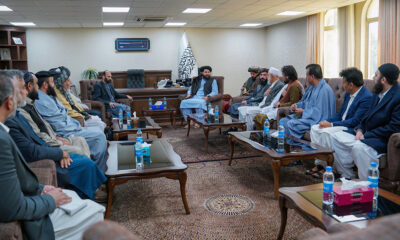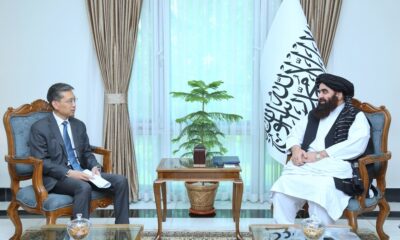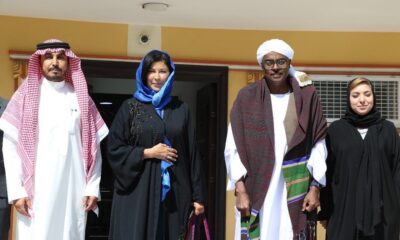Latest News
A new plan to ‘fix the war’ with a Bonn-style conference: AAN report
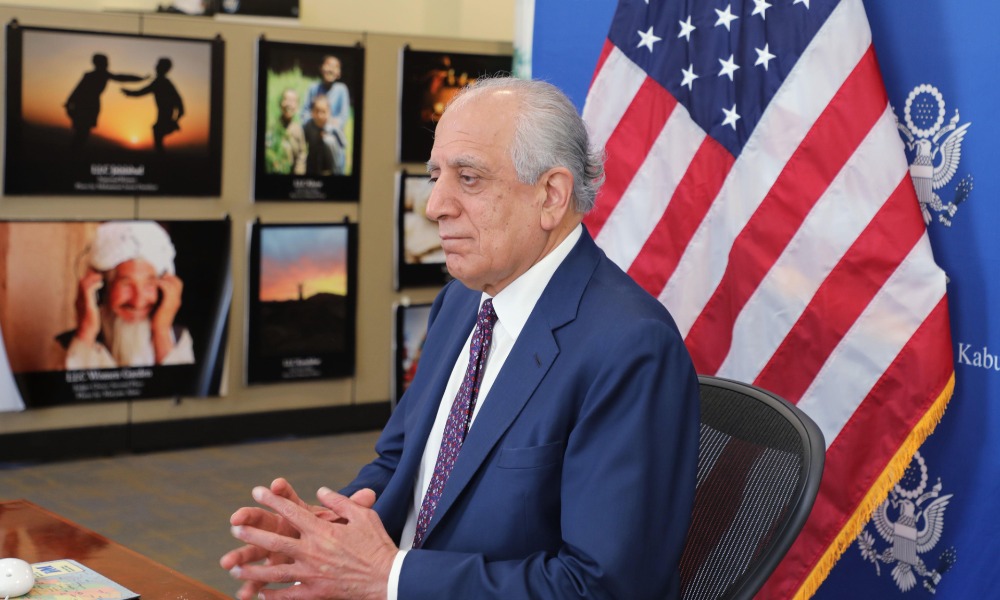
US peace envoy Zalmay Khalilzad has in the past week proposed the possibility of a Bonn-type conference that could cancel or sideline the intra-Afghan peace talks currently underway in Doha.
According to Afghanistan Analysts Network (AAN), “Bonn 2” appears to have been discussed in a number of capitals and with various Afghan leaders.
The proposal appears aimed at ensuring a US troop withdrawal that would not look like Washington is cutting and running, AAN stated adding that any new power-sharing agreement reached as a ‘quick fix’ to the conflict would be inherently risky.
This could include increased conflict and the breaking down and loss of whatever stability and systems Afghanistan now enjoys.
AAN’s Thomas Ruttig, who was at the first Bonn conference as part of the UN team, argues that the situation in Afghanistan in 2021 is anyway so very different from those in 2001 that calling for a Bonn 2 conference to resolve the conflict is disingenuous.
Ruttig states that according to sources, the US envoy told Afghan politicians that the peace talks in Doha will be sidelined and that a Bonn Conference-style meeting will be held at the international level to discuss the prospect of a participatory government that would include the Taliban.
“A grand international conference that will be similar to the Bonn Conference will be held, in which the Taliban and the republic side will participate at the leadership level. At the same time, the international community, including the United States and the regional countries, will reach a political agreement that will take its legitimacy from the international community.
“However, the national legitimacy (agreement of the potential conference) would take its authority from the traditional Loya Jirga,” said Shahzada Massoud, a close aide to former president Hamid Karzai, AAN reported.
AAN stated that Khalilzad had reportedly carried a special letter from the US Secretary of State Antony Blinken to President Ashraf Ghani and Abdullah Abdullah, Chairman of the High Council for National Reconciliation (HCNR), calling on them “to speed up the peace process and build an internal consensus to negotiate with the Taliban on a new level,” and to prepare for a “Bonn model” conference with the Taliban, hosted by Turkey in Ankara “as soon as possible.”
According to the report, the new plan seems inspired by the desire to meet the short, albeit formally conditional, timeline that was established by the year-old US-Taliban agreement for the withdrawal of US and other troops by 1 May 2021.
Khalilzad’s hope, apparently, is that a Bonn-style conference could result in a quick power-sharing agreement (or, similarly to the approach to that before the February 2020 Doha deal with a Taliban, with a ‘framework’ agreement as a first step).
His proposal would appear to mean the end or sidelining of the intra-Afghan talks in Doha where the Taliban and Islamic Republic of Afghanistan (IRoA) have yet to agree on an agenda, AAN reported.
AAN stated that his proposal might be primarily aimed at providing cover for the US troop withdrawal by 1 May, or alternatively include conditions for a delayed final withdrawal. Such an agreement would also allow the new US government to sidestep the thorny issue of whether the Taliban have fulfilled their commitments to the bilateral February 2020 Doha deal, with regard to cutting ties with al-Qaeda.
AAN stated that at least ten political leaders have agreed to the plan: President Ashraf Ghani, along with his two deputies, Amrullah Saleh and Sarwar Danesh; Abdullah Abdullah; former president Hamid Karzai and factional leaders Muhammad Mohaqeq, Muhammad Karim Khalili, Abdul Rashid Dostum, Abdul Rab Rasul Sayyaf and Yunes Qanuni.
The plan reported includes a handover of power from the current government to a transitional one, after “agreement on basic issues” in Ankara and in the presence of US and NATO military forces “in order to maintain political stability.”
The transitional government, reported AAN, could include leaders from Afghanistan and the Taliban but it is not clear how a transitional administration would become a permanent government.
Before Khalilzad arrived in Kabul last week, he had a stopover in Berlin. AAN reported it is likely Khalilzad discussed this plan with Berlin before heading to Afghanistan.
According to AAN, a first indirect reaction from the Afghan government to the Bonn 2 proposal came late on 3 March, from National Security Adviser Hamdullah Moheb, who said the government was “holding discussions about a wide range of alternatives” with various factions to achieve peace in the country.
He said any option needed “guarantees” from the international community and the Taliban. On 6 March, however, when opening the spring session of the Afghan parliament, Ghani indirectly rejected parts of the new US plan in a speech, particularly ideas of a non-elected government.
He reiterated that the transfer of power through elections was “a non-negotiable principle for us” and, tha the constitution would determine the country’s future, rather than other people’s plans.
He also said, however, that he was “ready to discuss the holding of a free, transparent, and countrywide election under the management of the international community” and that “[w]e can also talk about a date and reach a conclusion.”
Ghani did not refer to the idea of holding a new international conference.
AAN reported that it is interesting that Khalilzad chose to frame his plan as a ‘Bonn-style’ agreement, deliberately suggesting that it is possible to turn back history, press the restart button, deal the cards again – largely with the same factions, in some cases even the same individuals, but this time, with the Taliban at the table.
AAN stated that many authors and commentators, in hindsight, have described the fact that the Taliban were not included in Bonn 1 as one of its main mistakes.
In conclusion, AAN reported that the plan to hold a new “Bonn-style conference” prioritises US interests and timelines even more than the Doha agreement did.
Even if the Taliban agreed to a ‘Bonn 2 formula’, this would leave the causes of conflict unaddressed. It would hand the implementation of an agreement to parties who so far and to varying degrees have not been willing to seriously negotiate with each other or share power.
To only have armed factions at the negotiating table would again undercut the principle of broad participation, including of women’s organisations and other civil society groups, and would limit the chances of a peaceful future. It would repeat a major mistake of Bonn 1 where civilian political forces were not invited to the table, AAN reported.
However, if both sides could be brought to agree to a deal and even some form of truce, and troops withdrew, with the departing soldiers would go much of the remaining international attention on Afghanistan.
AAN reported that international powers would then have even less leverage on the Afghan parties, but might also have less interest, once their military engagement was over.
Latest News
Russia’s special envoy meets with IEA ministers, discusses bilateral issues
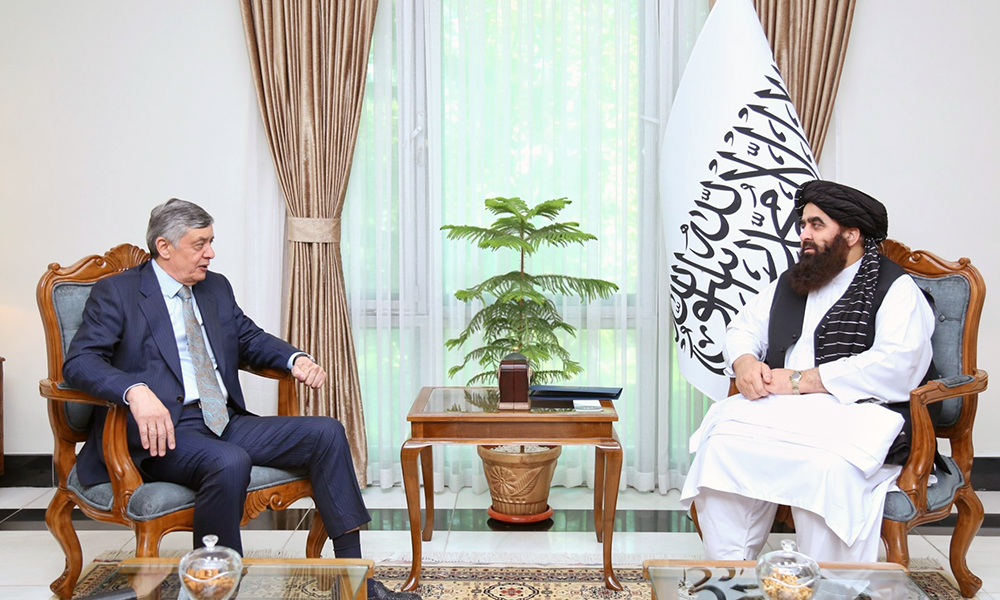
Zamir Kabulov, the Special Representative of the President of the Russian Federation for Afghanistan, who is on a visit to Kabul, has met with the Minister of Foreign Affairs of the Islamic Emirate Mawlavi Amir Khan Muttaqi for talks on political and economic issues between Afghanistan and Russia.
Regional issues were also discussed.
Muttaqi expressed appreciation for Russia’s support at regional and international meetings and emphasized the need to further strengthen political ties and trade relations between the two countries.
He also said that Afghanistan’s relations with countries in the region are flourishing and currently Afghanistan has active embassies in all neighboring countries.
Muttaqi called Afghanistan’s relations with Russia important and said the current ground realities of Afghanistan should be understood and that there is no reason why the United Nations needs to appoint a special representative to deal with Afghanistan.
He said the Afghan government is in talks with the UN over this issue and will make public its position after sufficient clarification has been provided on the agenda and composition of the next UN meeting in Doha.
Kabulov in turn stressed that any meeting held on Afghanistan should be convened with the approval of the Afghan government.
He said it is important for the United Nations to have the Afghan government approve and attend the next Doha meeting.
He said this series of meetings will not yield positive results without the Afghan government being in agreement.
He also said governments of the world should maintain relations with the Afghan government through bilateral mechanisms instead of multilateral contact mechanisms.
Kabulov emphasized that the US should release Afghanistan’s frozen assets and end its unilateral and “illegal” restrictions on the country’s banking system.
He also said Russia and Afghanistan need to improve coordination between them and went on to say he hoped Muttaqi would visit Moscow during the course of this year.
Kabulov also met with acting Minister of Interior Affairs Sirajuddin Haqqani.
This meeting focused on bilateral relations between both countries while political and security issues pertaining to the region were also discussed, the ministry said.
Latest News
Afghans in Europe Union members meet with ministers of defense, mining
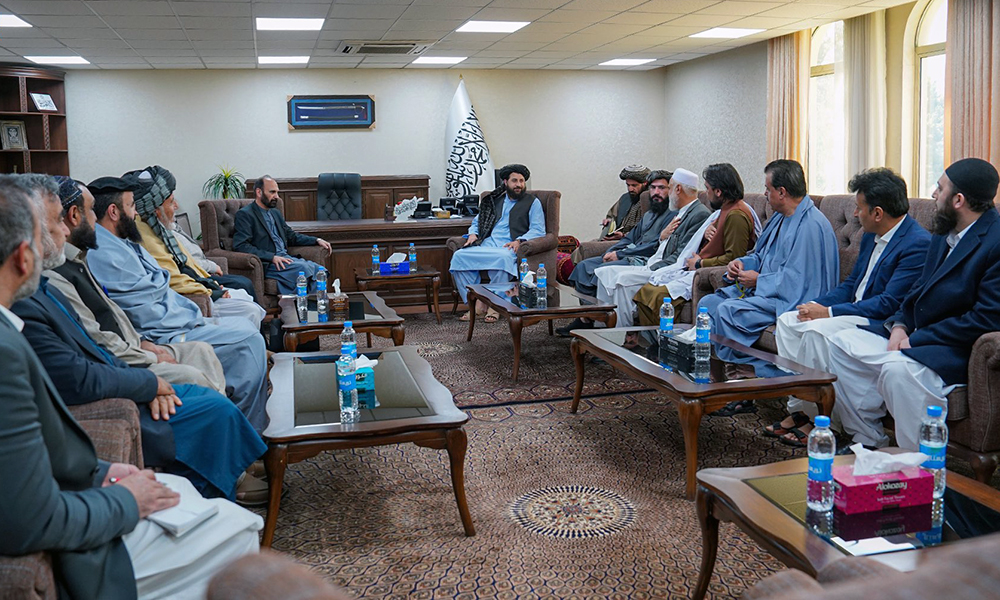
Representatives of the Union of Afghans living in Europe on Tuesday met with the ministers of defense and mining for talks on several issues.
Acting Minister of National Defense Mohammad Yaqoub Mujahid said in a meeting with union delegates that the current security situation in the country has provided an opportunity for everyone to participate in the progress of Afghanistan.
Mujahid added that there were still some problems in certain areas but that these will be removed.
In this meeting, Mujahid called Afghanistan the common home of all Afghans and said the problems in the country will be solved soon.
“The problems that exist in some issues will be solved soon; but there was nothing more than the security that has been revealed in this land today with the help of Allah and with the sacrifices of our people,” he was quoted in a statement as saying.
According to the statement, a number of Afghans, who only moved to the country after the Islamic Emirate’s takeover, expressed their satisfaction with the current situation in the country.
In addition, Shahabuddin Delawar, acting Minister of Mines and Petroleum, also met with union representatives and asked Afghans living abroad to return to Afghanistan and contribute to the country’s progress.
In this meeting, the Afghans living in Europe asked Delawar to provide better facilities to Afghans who want to invest in the country. The Ministry of Mines and Petroleum says that Delawar also asked the visiting delegation to return to Afghanistan and contribute to the country’s development.
Earlier, in a meeting with a number of other officials of the Islamic Emirate, including the political deputy of the Prime Minister and the Acting Minister of Foreign Affairs, this delegation emphasized the need to strengthen the system and provide work and education to Afghan girls and women.
Latest News
Regional developments require Afghanistan, China’s full coordination to protect interests: Muttaqi
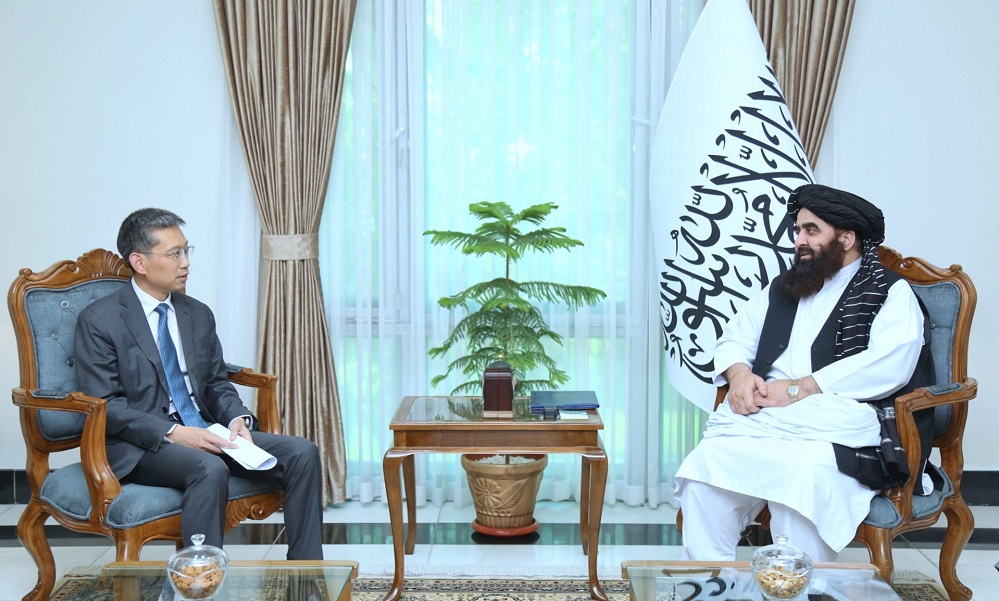
Acting Minister of Foreign Affairs Amir Khan Muttaqi has said that recent events and developments in the region require that Afghanistan and China continue their cooperation in full coordination so that they can protect their common interests.
Muttaqi stated this in a meeting with the Chinese ambassador in Kabul Zhao Xing.
The Ministry of Foreign Affairs said in a statement Tuesday that the two sides discussed bilateral political, economic and cultural cooperation between Afghanistan and China and the recent developments in the region.
Muttaqi expressed his satisfaction with the expansion of political, economic and cultural relations between the two countries and said that the Islamic Emirate has created good opportunities in the field of trade and investment.
He pointed out that the increase in the export of pine nuts to China and the progress in the Mes Aynak and Wakhan Corridor projects are clear examples of this policy of the Islamic Emirate.
According to the Ministry of Foreign Affairs’ statement, the Chinese ambassador considered the developments in various fields with Afghanistan as positive and added that he seeks to encourage Chinese businessmen and investors to play their role for long-term economic cooperation with Afghanistan.
He also said that his country is considering ways of bilateral cooperation and resources regarding Wakhan Corridor.
-

 Business5 days ago
Business5 days agoCommerce ministry inks 10 MoUs to boost development of small and medium-sized businesses
-

 Sport4 days ago
Sport4 days agoRashid Khan threatens BBL pullout after Australia postpones Afghanistan T20I series
-

 Latest News5 days ago
Latest News5 days agoOver 6,000 acres of land cleared of poppies in Badakhshan
-

 Latest News5 days ago
Latest News5 days agoMSF ‘deeply concerned’ over new phase of deportations of Afghans from Pakistan
-

 Sport3 days ago
Sport3 days agoAfghanistan Champions League kicks off with grand opening ceremony
-

 Latest News3 days ago
Latest News3 days agoPakistan’s frontiers minister stresses ‘dignified’ return of Afghan refugees
-

 Regional4 days ago
Regional4 days agoIran’s foreign minister downplays drone attack, says Tehran investigating
-

 Latest News4 days ago
Latest News4 days agoTen people killed by floods in Helmand




